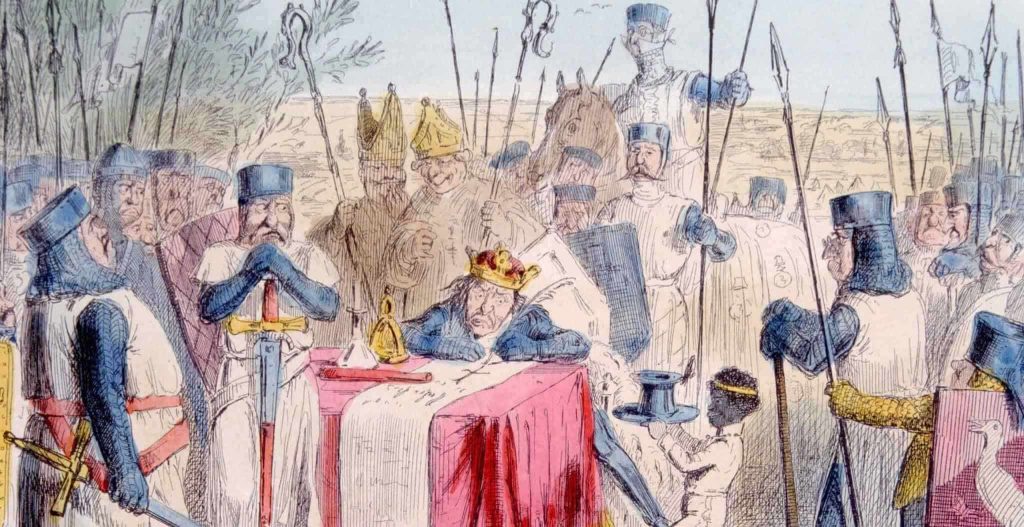In the lush meadows of Runnymede, a pivotal moment unfolded that would forever alter the course of history. Magna Carta, often hailed as the cornerstone of modern democracy, emerged from a clash not just of swords but of wills, pitting the iron-fisted King John against his rebellious barons. This wasn't merely a squabble over lands or titles; it was a battle for the very soul of England, a fight to etch the principles of justice and liberty into the bedrock of the nation. Imagine, for a moment, the tension in the air as the seal was pressed onto the parchment, binding the king to promises that would limit his power and ensure the rights of his subjects. This wasn't just a document; it was a beacon of hope, a promise that no one, not even a king, was above the law. Magna Carta laid the groundwork for the rule of law that would echo through the ages, influencing legal systems and democratic ideals far beyond the shores of medieval England. As we delve into the saga of this legendary charter, let's uncover how a peace treaty in a meadow became a symbol of freedom and justice worldwide.
Key Takeaway
Timeline
Day Activities
-
Historical Reenactments: Dive into the past with live reenactments that bring the signing of the Magna Carta to life. Actors donned in medieval garb recreate the tension and drama of June 15, 1215, offering spectators a glimpse into the monumental moment that shaped legal history.
-
Educational Workshops: Schools and communities host interactive workshops where folks of all ages can learn about the Magna Carta's significance. Through engaging activities, participants discover the charter's impact on modern democracy and the rule of law, making history both fun and informative.
-
Public Lectures and Debates: Experts in law and medieval history lead enlightening discussions on the Magna Carta's legacy. These sessions often culminate in spirited debates, encouraging attendees to ponder the document's relevance in today's society and how its principles continue to influence global justice and governance.
Interesting Facts
1. Birth of Modern Democracy
Magna Carta laid the groundwork for today's democratic systems by limiting royal power.
2. King John's Reluctant Signature
King John signed Magna Carta under pressure from rebellious barons, not willingly.
3. Not Just for the Nobles
Initially benefiting nobles, Magna Carta's principles now underpin universal human rights.
4. A Rocky Start
Despite its significance, Magna Carta was initially ignored and repealed by subsequent rulers.
5. Global Legacy
Magna Carta influences legal systems worldwide, symbolizing freedom and justice.
Why We Love This Day
-
Celebrating the roots of democracy: Magna Carta Day shines a spotlight on the monumental shift towards democratic governance and the rule of law. This day reminds us all that back in 1215, a group of determined barons put their foot down, demanding accountability from King John. Their bold move laid down the groundwork for modern democracy, showing us the power of collective action and the importance of standing up for what's right.
-
A nod to legal milestones: On June 15, we're not just tipping our hats to a dusty old document; we're honoring the very foundation of legal rights and freedoms as we know them. Magna Carta was a game-changer, introducing ideas like due process and the crazy notion that even kings have to follow the law. It's like the original "you can't do that" to overreaching rulers, setting the stage for the legal protections we often take for granted today.
-
Inspiration for future generations: Let's face it, Magna Carta Day isn't just about looking back; it's a beacon of hope for the future. It reminds us that change is possible, that justice can prevail, and that standing up for what's fair and right is always worth the fight. Every June 15, we're not just celebrating history; we're getting pumped up to be the change-makers of tomorrow, inspired by the brave souls of yesterday.
Past & Future Dates
| Month | Day | Year |
|---|---|---|
| JUNE | 15 | 2022 |
| JUNE | 15 | 2023 |
| JUNE | 15 | 2024 |
| JUNE | 15 | 2025 |
| JUNE | 15 | 2026 |
| JUNE | 15 | 2027 |
| JUNE | 15 | 2028 |
FAQ
What is Magna Carta Day?
Magna Carta Day on June 15 commemorates the signing of the Great Charter that limited the powers of the English monarch.
What was the significance of King John signing the Magna Carta on June 15, 1215?
In 1215, after King John of England violated a number of ancient laws and customs by which England had been governed, his subjects forced him to sign the Magna Carta, which enumerates what later came to be thought of as human rights.
What was the Magna Carta in June?
Magna Carta was issued in June 1215 and was the first document to put into writing the principle that the king and his government was not above the law. It sought to prevent the king from exploiting his power, and placed limits of royal authority by establishing law as a power in itself.
What happened on the 15th of June at Runnymede?
The Magna Carta (“Great Charter”) is a document guaranteeing English political liberties that was drafted at Runnymede, a meadow by the River Thames, and signed by King John on June 15, 1215, under pressure from his rebellious barons.
